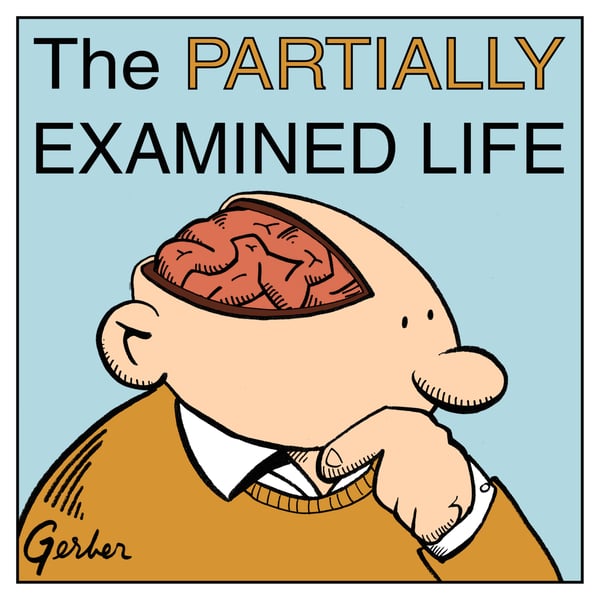Ep. 366: Edith Stein on Empathy (Part One)
The Partially Examined Life Philosophy Podcast
Mark Linsenmayer
4.6 • 2.3K Ratings
🗓️ 5 May 2025
⏱️ 44 minutes
🧾️ Download transcript
Summary
On The Problem of Empathy (1917). What is empathy, and what is its significance?
Stein pictures empathy as a dynamic process that involves what Scheler called sympathy but goes beyond this. Your don't just take the other person's feeling as our object of contemplation, but in doing so, your enter into it (while still not confusing it with YOUR feeling), this relating to it "non-primordially." So how does this work, exactly?
Get more at partiallyexaminedlife.com. Visit partiallyexaminedlife.com/support to get ad-free episodes and tons of bonus discussion.
Transcript
Click on a timestamp to play from that location
| 0:00.0 | You're listening to The Partially Examined Life, a podcast by some guys who at one point set on doing philosophy for a living, but then thought better of it. |
| 0:14.6 | Our question for episode 366 is something like, how can we know the emotional states of others? |
| 0:21.6 | We read Eithes Steins on the Problem of Empathy from 1917. |
| 0:26.2 | More information about the text and the podcast at please see Partially ExamineLife.com. |
| 0:30.4 | This is Mark Lentenmire, feeling primordial joy alive from my eye in Madison, Wisconsin. |
| 0:36.9 | This is the foreign living body of Seth, Paskin, in Austin, Texas. |
| 0:41.9 | This is Dylan Casey, primordially grasping my non-primordial experiences in Madison, Wisconsin. |
| 0:47.9 | Yes, we got some of the theory out here. |
| 0:50.6 | We actually haven't yet another version of foundational grounding primordial it's a new way to |
| 0:58.2 | say something direct immediate unmediated yes we just came off of talking about schellers take on |
| 1:08.1 | sympathy similar to empathy but stein had read the first edition of that |
| 1:13.8 | is reacting to that. So it's not the full text that we read, which was doubled in its second |
| 1:18.7 | edition a few years after this, which was in turn reacting to Stein. So Scheller had read |
| 1:23.0 | Stein. So this is definitely a dialogue. Unfortunately, some of the parts that of Scheller she's |
| 1:27.4 | reacting to is not what we read. |
| 1:29.9 | I want to know which part's primordial and which part's non-promordial. |
| 1:32.6 | That's my only question about that whole interaction. |
| 1:35.6 | Right. |
| 1:35.9 | So Scheller was really concerned about the contrast he drew was between sympathy, which is just taking someone else's joy or sorrow as my intentional |
| 1:47.2 | object, the thing that I'm thinking about. |
| 1:50.0 | And he didn't want us to confuse that with actually identifying with them, putting ourselves |
| 1:55.2 | in their shoes, which would just make sympathy into some kind of egoism, right? |
... |
Please login to see the full transcript.
Disclaimer: The podcast and artwork embedded on this page are from Mark Linsenmayer, and are the property of its owner and not affiliated with or endorsed by Tapesearch.
Generated transcripts are the property of Mark Linsenmayer and are distributed freely under the Fair Use doctrine. Transcripts generated by Tapesearch are not guaranteed to be accurate.
Copyright © Tapesearch 2025.

